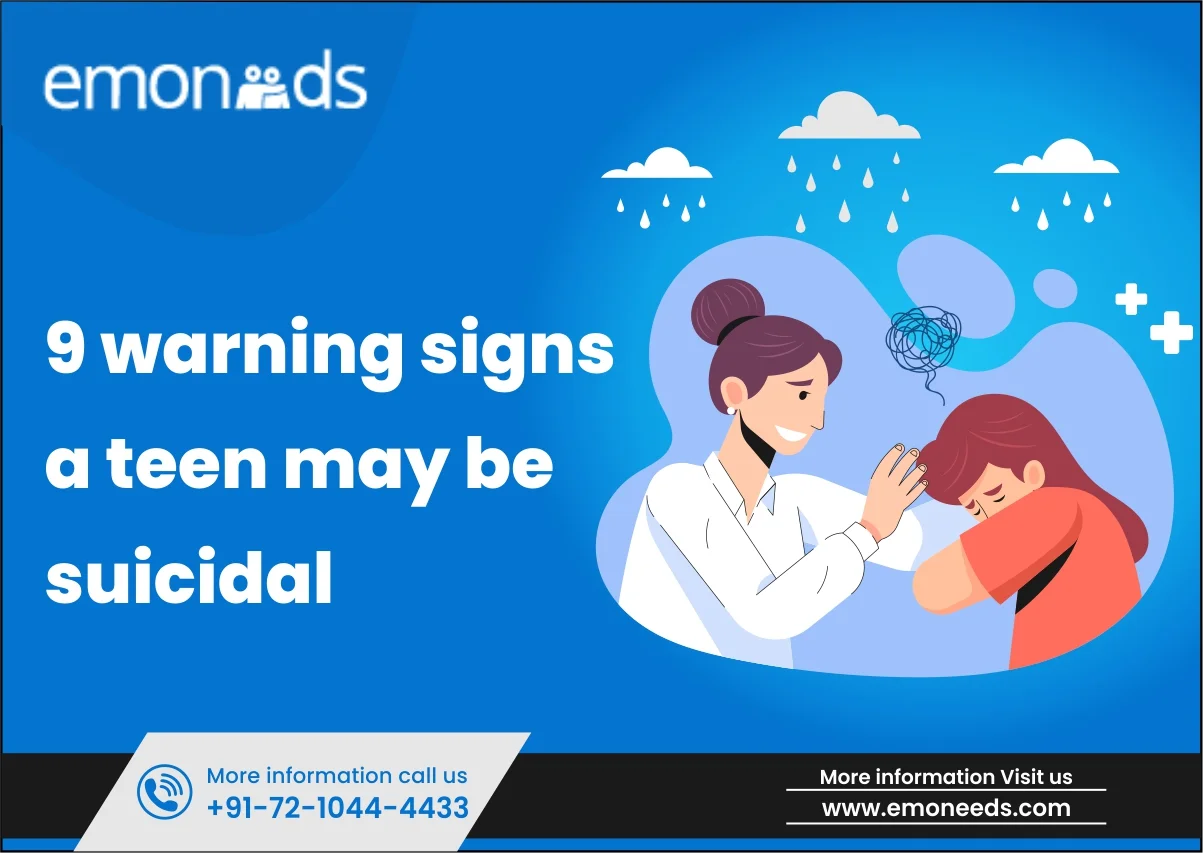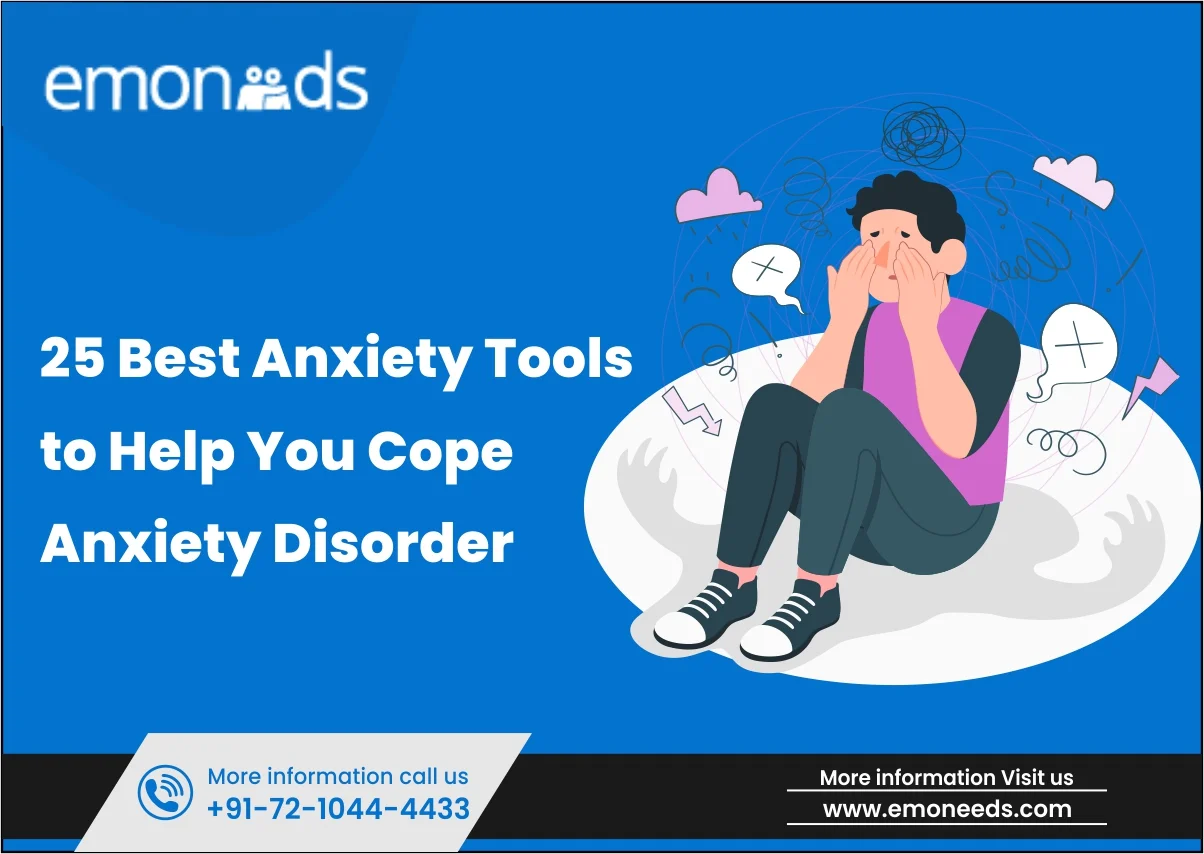
- November 27, 2023
- Saloni Kabra
- 0
Are you worried about your kids suicidal tendency? These “9 warning signs a teen may be suicidal” can help you.
Teenage years are a period of immense change and growth, but they can also be a time of profound struggle. In recent years, the alarming rise in teen suicide rates has shaken communities and families across the world. As responsible adults and caregivers, it’s crucial that we become vigilant in recognizing the warning signs that a teenager may be grappling with suicidal thoughts. These 9 warning signs are not to be taken lightly, as they can serve as critical indicators of emotional distress and pain.
This blog aims to shed light on the 9 key warning signs that may suggest a teen is contemplating suicide and how we can help them find the support they need.
Table of Contents
ToggleUnderstanding the Teenage Mind
Adolescence is a period of self-discovery, but it’s rife with societal pressures and emotional turbulence. Teens grapple with academic stress, peer influences, and the quest for self-identity. In the digital age, social media amplifies these challenges, exposing them to cyberbullying and unrealistic beauty standards, intensifying the pressure to conform. Unfortunately, mental health awareness is often insufficient in many communities, hindering teens from seeking help and compounding their sense of isolation and hopelessness.
Recognizing the 9 Warning Signs
1. Withdrawal and Isolation
When a teenager begins to withdraw from social activities and isolate themselves from friends and family, it can be one of the most common warning signs that they may be struggling with emotional distress. The sudden shift in their social behavior is more than just a phase; it’s a red flag that should not be overlooked. Pay close attention to any abrupt changes in your teen’s social life and friendships. Are they avoiding friends they used to spend time with? Do they seem disinterested in social events and activities they once enjoyed?
It’s important to recognize that teenagers, just like adults, need social connections and support. It’s not uncommon for teens to go through phases of wanting more alone time or needing space, but when this behavior becomes a prolonged pattern, it’s time to investigate further. Open communication and a non-judgmental approach are essential when trying to understand what might be causing this isolation.
2. Drastic Changes in Behavior
Extreme and sudden changes in a teenager’s behavior are another significant red flag to be mindful of. These changes can manifest in various ways and may be indicative of internal struggles that require attention. Pay attention to shifts in eating and sleeping patterns, deteriorating hygiene, or a sudden decline in school performance.
Changes in eating and sleeping habits can be linked to emotional distress, as teens may either overeat or lose their appetite when facing significant difficulties. If your teen’s personal hygiene suddenly deteriorates, it could be a sign that they’re finding it difficult to take care of themselves due to emotional turmoil.
Additionally, a sudden decline in school performance is often a clear indication of underlying emotional struggles. Teens who are overwhelmed by their emotions may find it challenging to focus on their studies or may lose interest in academic pursuits altogether. Investigating these changes and understanding the root causes is vital in providing the necessary support for your teen.
3. Expressing Hopelessness and Despair
Teens who are contemplating suicide may not always express their feelings explicitly, but they may give hints about their emotional state. One of the warning signs to watch out for is when they express feelings of hopelessness, sadness, or despair. This could be in the form of conversations with a trusted person or subtle hints in their conversations or creative expressions.
As adults, it’s crucial to actively listen to their words and create a safe and non-judgmental space for them to open up. Teens might be hesitant to talk about their feelings, fearing that they’ll be misunderstood or judged. Encourage them to share their thoughts and emotions by offering a compassionate and empathetic ear. Your support can make a significant difference in helping them navigate their emotional challenges.
4. Giving Away Possessions
A rather ominous sign is when a teenager starts giving away their prized possessions. This act signifies a feeling of detachment from life and is often an indication that they no longer see a future for themselves. Be wary if you notice your teen suddenly parting with cherished items, as it may be a clear indication of their emotional state.
When they give away their possessions, it can be seen as a way of saying goodbye to the world, as if they are preparing for their departure. It’s a clear sign that they may be losing hope for their future.
If you observe this behavior in your teen, it’s crucial to intervene immediately and seek professional help. Open a conversation with them about their feelings and let them know that you care and are there to support them.
5. Self-Harm and Suicidal Ideation
Self-harm is a distressing coping mechanism that is often linked to suicidal ideation. If you observe physical signs of self-harm, such as scars or fresh injuries, it’s a critical indication that your teenager is struggling to deal with overwhelming emotional pain and may be contemplating suicide.
Self-harm is a complex and harmful way of trying to cope with emotional turmoil, and it should never be dismissed as mere attention-seeking behavior. Teens who engage in self-harm are often dealing with intense emotions that they don’t know how to manage, and they may resort to self-inflicted pain as a way to release or distract from their emotional pain.
Recognizing self-harm can be challenging, as it’s often done in secrecy. However, if you do discover signs of self-harm, talk to your teen openly and encourage them to seek professional help to address their emotional struggles in a healthier way.
6. Drastic Mood Swings
While mood swings are common in teenagers due to hormonal changes and the tumultuous nature of adolescence, extreme and erratic mood swings can be a way for them to cope with internal turmoil. These mood swings can be severe, prolonged, or seem out of character for your teen. Deeper emotional struggles can be a result of internal conflicts, external pressures, or undiagnosed mental health issues.
If you notice that your teen’s mood swings are impacting their daily life and relationships, it’s crucial to investigate further. Engage in open and empathetic conversations with them to understand what may be causing these emotional fluctuations. Encouraging them to seek therapy or counseling, can be instrumental in helping them manage their emotions in a healthier way.
7. Saying Goodbye or Making Farewell Statements
Teens who are contemplating suicide may make unusual goodbyes or farewell statements. These statements can vary from cryptic to explicit and may indicate their intentions. Take any mention of farewell seriously, and don’t dismiss it as mere melodrama or a cry for attention.
Saying goodbye or making farewell statements can be a significant indicator that a teen is preparing to end their life. These statements may be shared in person, through written messages, or on social media platforms. Regardless of the medium, it’s important to take immediate action if you come across such messages.
Don’t hesitate to reach out to your teen and express your concern. Let them know that you care about their well-being and that you’re there to support them. Additionally, seek professional help and inform the appropriate authorities if necessary.
8. Substance Abuse
Substance abuse is often used as a way to cope with emotional pain. Many teenagers turn to drugs or alcohol as an escape from their troubles, and the connection between substance abuse and suicide risk is significant. It’s vital to address this issue promptly.
Teens who are struggling emotionally may turn to substances to numb their pain or temporarily escape from their reality. While substance abuse might provide momentary relief, it ultimately exacerbates their problems and increases the risk of self-destructive behavior, including suicide.
Recognizing signs of substance abuse in your teen can be challenging, as they may try to conceal their actions. Look for changes in behavior, the presence of drugs or alcohol in their personal belongings, or signs of intoxication. If you suspect substance abuse, it’s crucial to address the issue openly and offer support to help them overcome this destructive coping mechanism.
9. Talking About Suicide Directly
Perhaps the most straightforward but critical warning sign is when a teenager talks about suicide directly. If they express thoughts of wanting to end their life, it should never be brushed off as mere talk for attention. Taking any mention of suicide seriously is crucial. When a teen talks about suicide directly, it’s a clear cry for help. They may be reaching out to someone they trust, desperately seeking support and understanding.
Approach these conversations with empathy and active listening. Encourage your teen to express their feelings and thoughts without judgment. Let them know that you are there for them and are committed to helping them navigate their emotional challenges. Seeking immediate professional help is essential in these situations, as it can be a matter of life and death.
Conclusion
Recognizing and addressing the warning signs of teen suicide is a moral imperative. In a society that often expects teenagers to bear their emotional turmoil silently, we must create a compassionate environment where they can seek help without fear. Teens need our support and understanding. By actively listening, offering a safe space, and seeking professional help when needed, we can prevent the tragedy of teen suicide and pave the way for a brighter future.
Reach out to Emoneeds for expert care and support. Together, we can work towards a society where no teenager faces the darkness alone, ensuring young lives are valued and protected.















